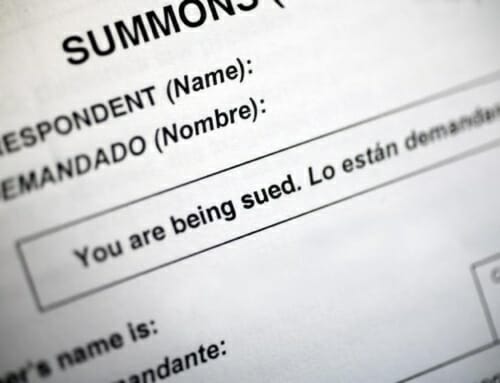NRCP 7: Pleadings Allowed; Form of Motions
In following NRCP 6, which discusses when court documents should be filed, NRCP 7 discusses what kind of documents may be filed in those time periods and the format in which they must be drafted. There are six different enumerated pleadings allowed by NRCP 7, and the Court may allow two additional kinds.1 NRCP 7 also establishes the content that is required in motions and other pleadings.2 All motions, except those made during a hearing or trial, must be in writing and must establish the basis for the claim presented as well as the relief sought if the motion was to be granted.3 The specific formatting of motions is included, by using all the same requirements for pleadings and applying them to motions as well.4 Arguably the most important factor, NRCP 7 requires all motions to be signed5, thus holding attorneys responsible.6
Holden v. Truck Ins. Exch.
While seemingly straightforward, the Nevada Supreme Court has heard a handful of cases revolving around NRCP 7. In Holden v. Truck Ins. Exch., the defendant claimed that Holden failed to plead the proper claim of detrimental reliance in a reply to the defendant’s answer.7 The Court in Holden held that as per NRCP 7(a), a reply to the defendant’s answer is not required.8 Therefore, Holden’s failure to allege detrimental reliance was not applicable to bar their claim from moving forward.
Monroe, Ltd. v. Central Tel. Co.
In Monroe, Ltd. v. Central Tel. Co., the Nevada Supreme Court reaffirmed why it is vital to follow NRCP 7(b) when filing motions. NRCP 7(b)(1) states that, “An application to the court for an order shall be by motion which, unless made during a hearing or trial, shall be made in writing, shall state with particularity the grounds therefor, and shall set forth the relief or order sought.”9 The Court held that, “a written motion stating the grounds with particularity is intended to guarantee that the adverse party be informed not only of its pendency, but also the basis upon which the movant seeks the order.”10 The respondent in Monroe alleged that they were never properly notified of the motion11 and therefore the Court found there to be valid grounds to vacate the lower court’s ruling.12 By failing to comply with NRCP 7(b), the lower court’s decision was vacated due to a lack of authority.13 On appeal, the Court found that when the proper procedures are followed, the lower court’s decision was accurate.14 In the end, the same result came about, however, following NRCP 7(b) would have allowed for a shorter trial.
Bowers v. Edwards
In Bowers v. Edwards, the plaintiff brought suit to recover money he had paid to the defendant for a restaurant and vacate the rest of the money owed.15 Edwards filed a counterclaim alleging that he was still owed the remaining money from the sale of his restaurant.16 The Court in this matter found that since the plaintiff had not responded to the counterclaim, as required in NRCP 7,17 then by default Bowers was admitting to the claims alleged in the counterclaim.18 However, upon appeal, the Nevada Supreme Court found that the defendant’s alleged unjust enrichment from the lower court’s decision warranted a limited new trial.19 This is another example of how following NRCP 7 could have saved one of the parties time and money. If Bowers had properly filed a counterclaim, alleging that a decision against him for the remaining money would have led to unjust enrichment, the necessity for appeals and additional fees could have been avoided.
By following NRCP 7, unneeded expenses and, possibly, trials can be avoided. As seen above, a failure to comply with NRCP 7 does not always mean that a party will never prevail, however, compliance with NRCP 7 could mean a final judgment on cases sooner rather than later.




